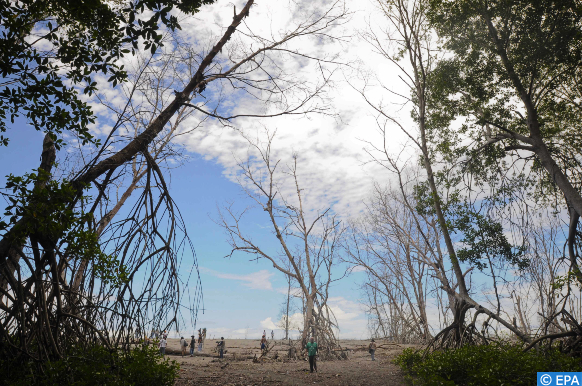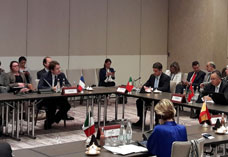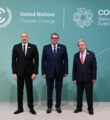CCPI 2021: Morocco Regional Role Model in Africa – European Portal
Brussels – Morocco is listed as a “regional model in Africa” in the Climate Change Performance Index (CCPI) 2021, European news portal “EU Political Report” reported Wednesday.
“Morocco is ranked higher than all EU Member States except Denmark and Sweden – showing that the country can be a real regional leader in this regard for the African continent,” it said.
That the Kingdom of Morocco is in the top world ranking is the result of a strategy carried at the highest level of the state, with dedicated institutions, adapted regulations and quantified objectives, EU Political Report added, quoting Saïd Mouline Director General of the Moroccan Agency for Energy Efficiency (AMEE), Head of the public-private partnership division at COP22.
“Add to this good governance and periodic monitoring, and the results are there,” he said.
Three developing countries are among the top ten in the ranking published on December 7, namely Morocco (7th), Chile (9th) and India (10th).
This year’s index paints a mixed picture of the climate action in the EU, which now stands at a crossroads. Scandinavian EU countries, Portugal and the EU as a whole rank high on the index with relatively good indicators. However, Hungary, Poland and the Czech Republic stand out as laggards on climate progress within the bloc.
Quoting Stephan Singer, Senior Advisor, Global Energy Policies of Climate Action Network, the portal notes that many smaller nations like Portugal, Morocco, Chile and others in Europe perform much better.
Overall, greenhouse gas emissions have increased slightly, but are actually falling in more than half of the countries (32) surveyed. In two-thirds of the countries (38) more than 10% of the total primary energy required now comes from renewable sources and in twelve countries renewables account for more than 20%.
Since 2005, the CCPI has provided analysis of countries’ climate protection performance. Produced by German Watch, Climate Action Network International and the New Climate Institute, it creates transparency in climate policy, makes it possible to compare climate protection efforts, and lets you see progress and setbacks.














